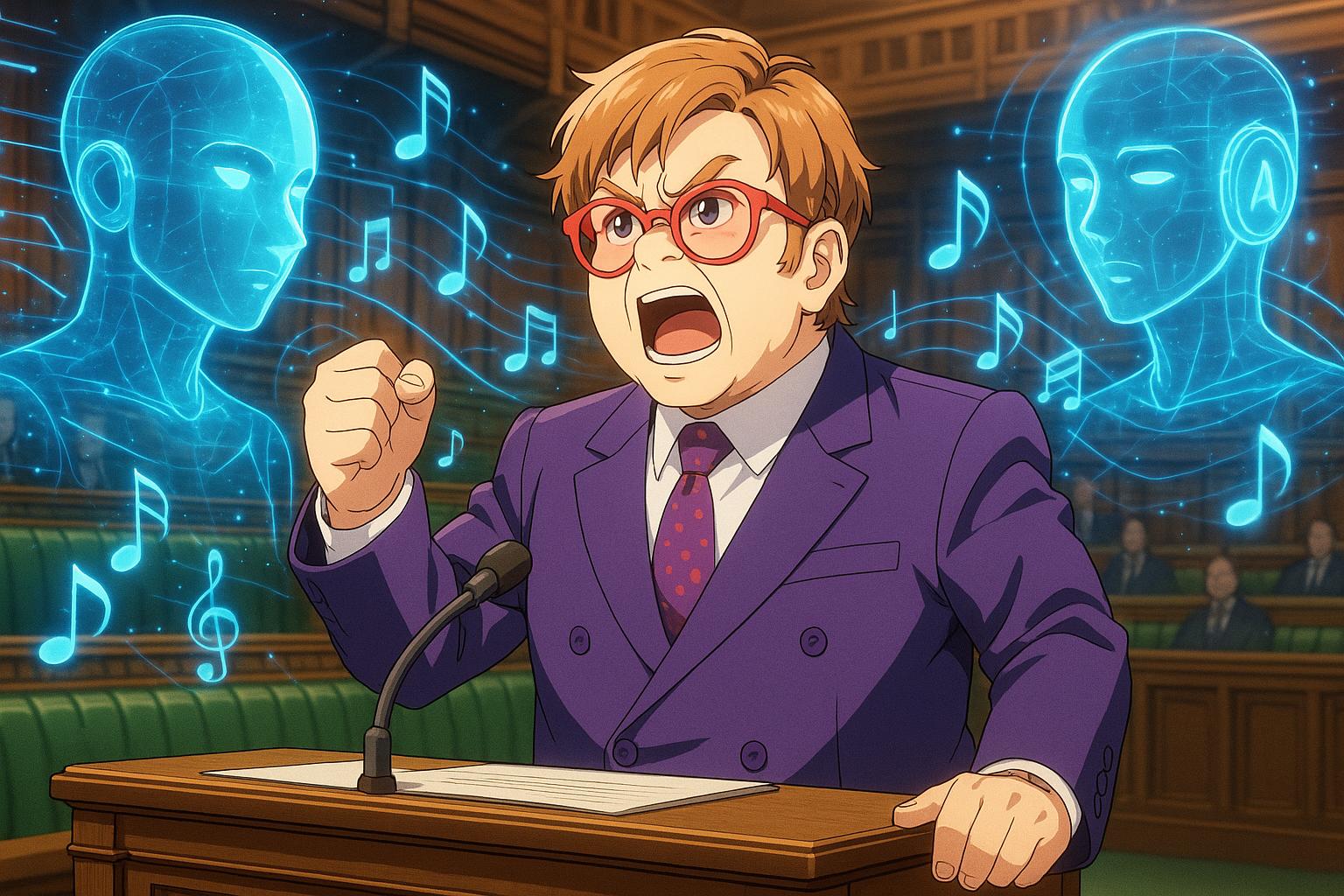Sir Elton John has recently vociferously condemned the UK government in light of proposed amendments to copyright laws that many in the creative community believe jeopardise the future of artistry in the age of artificial intelligence (AI). The debate has been ignited by the government's attempts to relax regulations that would allow tech firms to utilise copyrighted material for AI training without requiring prior consent or compensation from the original creators.
In a recent parliamentary session, the House of Lords voted in favour of amending the Data (Use and Access) Bill to introduce transparency measures requiring that copyright holders grant permission for the usage of their work. However, this amendment was swiftly rejected by the House of Commons, prompting Elton John to label the government as "losers" for its failure to protect the rights of creatives. He emphasised that such negligence would rob future generations of artists of their legacies and potential incomes. “The prime minister must not sell our young talent down the river and allow all that creativity to be crushed by soulless AI,” he declared passionately.
John’s critique is echoed by other notable figures in the music industry, including Paul McCartney and Ed Sheeran, who have expressed their concerns about the implications of the proposed legislation. These artists argue that while AI could be a tool for innovation, allowing it to operate without oversight would fundamentally undermine the emotional depth and personal connection inherent in human-created art. As McCartney succinctly noted, such changes risk dampening the incentive for creators to produce new work, potentially leading to a decline in originality and artistic expression.
The concerns are not merely anecdotal; over 400 artists, ranging from established icons to emerging talents, have signed a letter urging Prime Minister Sir Keir Starmer to advocate for stronger copyright protections. This collective effort seeks to amend the current legislative proposals, including a call for a clearer “opt-in” system where AI companies would be required to seek approval, rather than leaving creators to opt out post-factum.
In response to these legislative developments, a silent album titled "Is This What We Want?" has been released, featuring recordings from over 1,000 musicians, including Kate Bush and other prominent figures. The album serves as a stark protest against the government’s proposals, symbolising what could happen to the music industry if creators lose control over their work. Through its empty tracks, the album encapsulates the fear that the vibrant artistic landscape of the UK may diminish if these changes go through.
Despite the outcry, the UK government maintains that it is consulting with stakeholders and insists that any policy changes will be carefully evaluated to ensure they benefit both AI development and the creative sector. Yet, with the rapid pace of technological advancement, critics argue that such a cautious approach may prove inadequate. The challenges posed by unregulated AI are reminiscent of other global issues like climate change, suggesting that any effective response will require more than local legislation—it demands international cooperation and regulation to safeguard the future of creative professions.
As the debate continues, the fate of the creative industry hangs in the balance, with artists like Elton John leading the charge in advocating for their rights. Without decisive action to overhaul copyright protections suitable for the modern age, there’s a real risk of undermining the foundations upon which the UK’s rich cultural heritage has been built. The conversation surrounding AI, creativity, and copyright is ongoing, and it remains crucial that the voices of those within the industry are heard as these policies evolve.
Reference Map
- Paragraphs 1, 2, 6
- Paragraphs 3, 5
- Paragraph 4
- Paragraphs 2, 3, 6
- Paragraph 5
- Paragraphs 4, 7
- Paragraph 6
Source: Noah Wire Services
